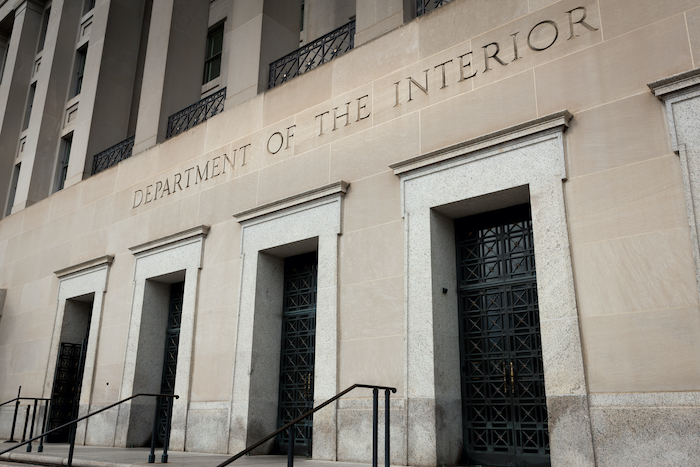
- Details
- By Native News Online Staff
The Department of the Interior is proposing updates to the Native American Graves Protection and Repatriation Act (NAGPRA) and will hold three online consultation meetings this month for tribal members and Native Hawaiians.
The proposed changes are meant to simplify and fix issues that exist under the current regulations. According to letter sent to tribal and Native Hawaiian leaders, the consultations will also seek input about whether the current organizational placement of the NAGPRA program (i.e., within the National Park Service) is working well, or if placement within the Office of the Assistant Secretary - Indian Affairs, or elsewhere, would be preferable.
Registration for the online meetings, which begin the afternoon of Aug. 9, can be found on the Bureau of Indian Affairs website. DOI will also host online consultation meetings on Aug. 13 and Aug. 19.
The DOI is also accepting written comments until the end of the month. If you would like to provide written comments, email them to nagpra _ [email protected] by Aug. 31, 2021, 11:59 p.m. EST. If you have questions about these consultation sessions, contact Melanie O'Brien, National NAGPRA Program, at (202) 354-2204.
More Stories Like This
NCAI Passes Two Emergency Resolutions on Immigration Enforcement ActivitiesChickasaw Lighthorse Police Officer named Indian Country Law Enforcement Officer of the Year
Indian Gaming Association Rallies Broad Coalition Against Sports Event Contracts It Calls Illegal Threat to Tribal Sovereignty
Navajo Resources and Development Committee Issues Notice on Livestock Inspection Requirements
American Prairie, Tribal Coalition Files Protest Over Rescinded Grazing Rights
Help us defend tribal sovereignty.
At Native News Online, our mission is rooted in telling the stories that strengthen sovereignty and uplift Indigenous voices — not just at year’s end, but every single day.
Because of your generosity last year, we were able to keep our reporters on the ground in tribal communities, at national gatherings and in the halls of Congress — covering the issues that matter most to Indian Country: sovereignty, culture, education, health and economic opportunity.
That support sustained us through a tough year in 2025. Now, as we look to the year ahead, we need your help right now to ensure warrior journalism remains strong — reporting that defends tribal sovereignty, amplifies Native truth, and holds power accountable.
 The stakes couldn't be higher. Your support keeps Native voices heard, Native stories told and Native sovereignty defended.
The stakes couldn't be higher. Your support keeps Native voices heard, Native stories told and Native sovereignty defended.
Stand with Warrior Journalism today.
Levi Rickert (Potawatomi), Editor & Publisher

